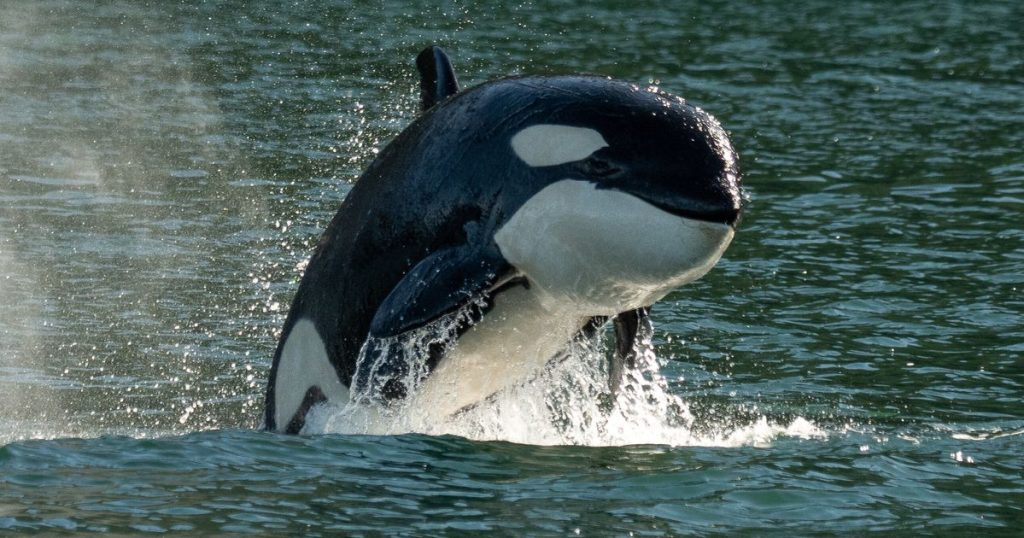Killer whale “attacks” on boats are often misunderstood as acts of aggression, when in reality they are more likely a form of play, according to an orca expert interviewed by MSNBC. Despite the size and strength of killer whales, their interactions with boats may be more about curiosity and fun rather than hostility. The expert explained that orcas are highly intelligent and social animals that exhibit complex behaviors, including playfulness, which may lead them to interact with boats in a playful manner. This perspective challenges the common perception of killer whales as dangerous predators that pose a threat to humans and boats.
The behavior of killer whales towards boats can vary depending on the context and individual characteristics of the orcas involved. While some encounters may appear aggressive or intimidating, they may actually be driven by curiosity or a desire to interact with their surroundings. The expert pointed out that killer whales are known to be inquisitive animals that are capable of learning and adapting their behaviors based on their interactions with the environment. This adaptability and intelligence may explain why orcas engage in behaviors that are perceived as aggressive or threatening, even though they may be driven by non-aggressive motives.
Despite the playful nature of killer whales’ interactions with boats, experts caution that these encounters can still be potentially dangerous for both humans and orcas. The sheer size and power of killer whales make them formidable creatures that should be treated with respect and caution when encountered in their natural habitat. It is important for boaters and observers to maintain a safe distance from orcas and avoid engaging in activities that may provoke or agitate them. By respecting the boundaries of these wild animals and following guidelines for responsible wildlife viewing, humans can mitigate the risks associated with close encounters with killer whales.
The expert emphasized the importance of understanding and appreciating killer whales as intelligent and social creatures with complex behaviors, rather than viewing them solely as predators or threats. By adopting a more informed and compassionate perspective on orcas, individuals can foster a greater appreciation for these majestic marine mammals and promote their conservation and protection in the wild. Encouraging responsible and respectful interactions with killer whales can help ensure the safety and well-being of both humans and orcas, while also contributing to the preservation of these iconic species for future generations to enjoy.
In conclusion, the perception of killer whales as aggressive predators that pose a threat to boats may be misguided, as these interactions are more likely driven by playfulness and curiosity rather than hostility. By recognizing the intelligence and social nature of orcas, humans can develop a deeper understanding and appreciation for these magnificent creatures, and promote their conservation and protection in the wild. Responsible wildlife viewing practices and respectful behavior towards killer whales can help ensure safe and harmonious coexistence between humans and these iconic marine mammals. By approaching killer whale encounters with empathy and awareness, individuals can contribute to a better future for these awe-inspiring animals in their natural habitat.


